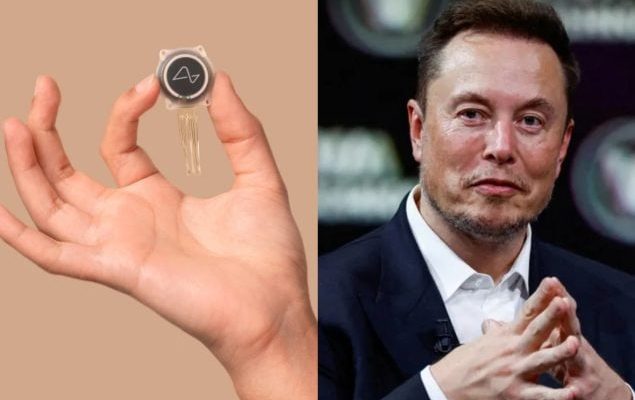Elon Musk’s brain-chip startup, Neuralink, has achieved a significant milestone with its experimental implant, Blindsight, receiving the US Food and Drug Administration’s (FDA) “breakthrough device” designation.
This designation is granted to medical devices that address life-threatening conditions and fast-track their development and review processes.
Neuralink announced the news via its X page on Tuesday, stating, “We have received Breakthrough Device Designation from the FDA for Blindsight.

“Join us in our quest to bring back sight to those who have lost it. Apply to our Patient Registry and openings on our career page.”
Blindsight is designed to restore vision in individuals with complete or partial blindness, including those with non-functional optic nerves.
Elon Musk shared the development on his own X social media platform, emphasizing the potential of the device.
“The Blindsight device from Neuralink will enable even those who have lost both eyes and their optic nerve to see,” Musk said.

He added that the device could also provide vision for those blind from birth, though initially, the vision will be low resolution, akin to “Atari graphics.”
Musk expressed optimism that the technology could eventually surpass natural vision and enable users to see in wavelengths such as infrared, ultraviolet, or even radar, likening it to the vision capabilities of the character Geordi La Forge from Star Trek.
Founded by Musk in 2016, Neuralink focuses on developing advanced brain-computer interfaces to revolutionise treatments for neurological disorders.
The company’s technology includes a brain implant that reads neural signals and wirelessly transmits them to external devices like computers and mobile phones.
In addition to Blindsight, Neuralink is working on an implant that allows paralysed individuals to control digital devices with their thoughts.
The company is also conducting a clinical trial involving three participants to assess the implant’s effectiveness in helping those with spinal cord injuries.
Recent reports from August 2024 revealed that Neuralink’s brain-computer interface was successfully implanted in a second patient, who is now able to control video games and create 3D designs using only their thoughts.
ALSO READ THESE TOP STORIES FROM NIGERIAN TRIBUNE







